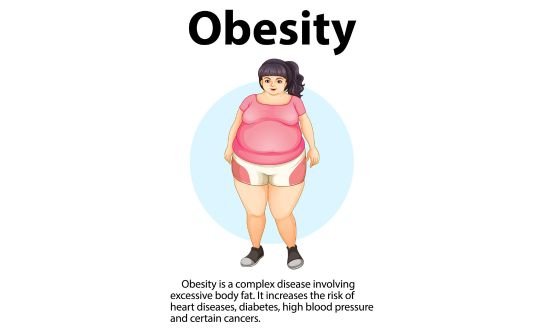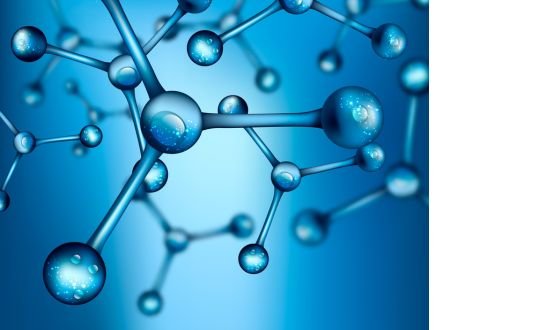Peptides for weight loss are increasingly being used in today’s health-conscious society. Small proteins known as peptides help with weight loss and provide a number of health advantages. We’ll talk about several peptides in this post and how they function to help you lose weight and become healthier overall.
What Are Peptides?
Peptides are short chains of amino acids which are the building blocks of proteins. They play significant role in various body functions. They are involved in everything from regulating hormones and supporting immune function to promoting tissue repair and aiding in digestion.
Mechanism of Action of Peptides for Weight loss
To understand role of peptides for weight loss, it’s essential to know their general mechanism of action:
- Appetite Regulation: Certain peptides works by influencing hunger and fullness signals in the brain which can help individuals in controlling their food intake.
- Increase Metabolic Rate: Peptides may increase metabolic rate which allows the body to burn more calories even at rest.
- Fat Mobilization: Some peptides stimulate the release of stored fat from adipose tissues, making it available for energy use.
Obesity Statistics

According to data over 39% of adults are overweight and over 13% of adults are obese globally making obesity a significant health concern. Obesity is associated with various health issues like heart disease, diabetes, hypertension and more. As a result, many individuals are searching for effective ways to lose weight and improve their overall well-being. Do try our BMI calculator to check either you’re overweight or not.
What is Peptide Therapy?
Small chains of amino acids known as peptides are used in peptide therapy, a medicinal strategy, to improve how the body functions. These peptides can have a variety of effects, including increasing the synthesis of growth hormone, decreasing inflammation, or even promoting weight loss. Peptides can be delivered intravenously or consumed as capsules or protein powder.
Categories of Peptides for Weight Loss

Peptides for weight loss can be grouped into several categories based on their primary mechanisms of action. Main categories in this regard are:
1. Growth Hormone-Releasing Hormone Analogues
Mechanism of Action: These peptides stimulate the pituitary gland to release growth hormone, which in turn promotes fat loss by increasing metabolism and encouraging the body to utilize fat for energy. Moreover, they promote muscle and bone growth.
Peptides in this category are:
1. Tesamorelin
- FDA status: Approved for HIV-related lipodystrophy
- Role: It causes reduction of abdominal fat in individuals with HIV-related lipodystrophy
- Side Effects: Common side effects include joint pain and numbness or swelling in arms or legs.
2. Sermorelin
- FDA status: Approved
- Role: Stimulation of growth hormone release
- Side Effects: Potential side effects include headaches, nausea and taste changes.
3. CJC-1295
- FDA status: Not approved
- Role: Stimulation of growth hormone release
- Side Effects: Potential side effects include headaches, diarrhea and abdominal pain.
4. GHRP-6
- FDA status: Not approved
- Role: Stimulation of growth hormone release
- Side Effects: Potential side effects include increased hunger and water retention.
2. Ghrelin Analogues – Ipamorelin
Mechanism of Action: Ghrelin is known as the “hunger hormone”. These peptides mimic ghrelin’s effects by increasing appetite and potentially aiding in weight loss by promoting muscle growth.
- FDA status: Not approved
- Role: Increase appetite and promoting muscle growth
- Side Effects: Side effects are generally mild and may include headaches, dizziness and nausea.
3. GLP-1 Analogues
Mechanism of Action: GLP-1 (glucagon-like peptide-1) analogues mechanism of action is not completely understood. However, their reported mechanism of action in weight loss is increasing sensitivity of insulin, decreasing appetite, delayed gastric emptying and increasing energy expenditure.
Peptides in this category are:
a. Semaglutide
- FDA status: Approved peptide for weight loss (under brand name Wegovy)
- Role: Reduces appetite and promotes weight loss
- Side Effects: Side effects may include dizziness, nausea and gastrointestinal issues.
b. Liraglutide
- FDA status: Approved peptide for weight loss (under brand name Saxenda)
- Role: Reduces appetite and promotes weight loss
- Side Effects: Common side effects include nausea, diarrhea and diziness.
4. GLP-1 and GIP Analogues – Tirzepatide
Mechanism of Action: These analogues targets both GLP-1 and GIP (glucose-dependent insulinotropic peptide) receptors, leading to appetite suppression, increase insulin secretion and improved glucose metabolism.
- FDA status: Approved for diabetes type 2 and used off-label for treatment of obesity
- Role: Appetite suppression and glucose control
- Side Effects: Side effects are nausea, tiredness, kidney and vision problems.
5. Melanocortin Analogues – Melanotan II
Mechanism of Action: These peptides target melanocortin 4 receptors in the brain, influencing appetite and metabolism.
- FDA status: Not approved
- Role: Appetite suppression and metabolism enhancement
- Side Effects: Common side effects include nausea, flushing, darkened skin and increased libido.
6. Adipotide
Mechanism of Action: Adipotide works differently from other peptides. It targets blood vessels that supply fat tissue, leading to fat cell death and a reduction in body fat.
- FDA status: Ongoing clinical trials
- Role: Fat cell death and fat reduction
- Side Effects: Ongoing clinical trials
Injectable Peptides for Weight Loss
Injectable peptides for weight loss are a medical option that can help in losing weight and improving overall health. Some examples include:
- Semaglutide (Wegovy): An FDA-approved peptide that reduces appetite and promotes weight loss.
- Liraglutide (Saxenda): Another FDA-approved option for appetite suppression and weight management.
- Tesamorelin: Approved for HIV-related lipodystrophy, it helps reduce abdominal fat in specific cases.
- Tirzepatide: An investigational peptide that shows promise in appetite suppression and glucose control.
- Adipotide: This peptide targets fat cells, leading to fat cell death and fat reduction.
Peptides for Weight Loss: What the Research Says?

While these peptides offer potential benefits for weight loss, it’s important to note that research is ongoing and response of peptide therapy vary from person to person. Consultation with a healthcare professional is very important before considering peptide therapy for weight loss.
Comparison of Various Peptides for Weight Loss
|
Category |
Peptide |
Weight Loss Role |
|
Growth Hormone-Releasing Hormone Analogues |
Tesamorelin |
Reduction of abdominal fat in HIV-related lipodystrophy |
|
Sermorelin |
Stimulation of growth hormone release Increase Fat metabolism Promote muscle and bone growth |
|
|
CJC-1295 |
Stimulation of growth hormone release Increase Fat metabolism Promote muscle and bone growth |
|
|
GHRP-6 |
Stimulation of growth hormone release Increase Fat metabolism Promote muscle and bone growth
|
|
|
Ghrelin Analogues |
Ipamorelin |
Increase appetite and promoting muscle growth |
|
GLP-1 Analogues |
Semaglutide (Wegovy) |
Appetite suppression, increase insulin sensitivity, delayed gastric emptying and increase energy expenditure |
|
Liraglutide (Saxenda) |
Appetite suppression, increase insulin sensitivity, delayed gastric emptying and increase energy expenditure |
|
|
GLP-1 and GIP Analogues |
Tirzepatide |
Appetite suppression, increase insulin secretion and glucose control |
|
Melanocortin Analogues |
Melanotan II |
Appetite suppression and metabolism enhancement |
|
Adipotide |
Adipotide |
Fat cell death and fat reduction |
Other Health Benefits of Peptides
There are many other roles of peptides other than weight loss. Some of the important health benefits are:
- Improved Skin Health: Certain peptides can promote collagen production which can reduce the signs of aging.
- Enhanced Muscle Recovery: Peptides like TB-500 can aid in muscle healing after injury or strenuous exercise.
- Hormone Regulation: Some peptides helps in regulating hormones. It can be effective in treatment of hormonal imbalances.
- Reduced Inflammation: Peptides may have anti-inflammatory properties, which can benefit individuals with inflammatory conditions.
- Joint Health: Certain peptides are helpful in improving joint health and treatment of joint pain.
Useful Tools for Weight Management
You can use our user friendly BMI calculator , BMR calculator and calories calculator to keep track of your weight in your weight management journey. Whether you’re aiming to maintain, lose, or gain weight, these tools provide valuable insights to help you stay on track and achieve your wellness goals effortlessly.
FAQ’s about Peptides for Weight Loss
Q1: Can peptides replace diet and exercise for weight loss?
Peptides are not a substitute for a healthy diet and regular exercise. They can be considered as complementary aids.
Q2: Are peptides for weight loss available over the counter?
In many cases, these peptides require a prescription or medical supervision and are not available over the counter.
Q3: What are the potential side effects of using weight loss peptides?
Side effects can vary by type but may include headaches, nausea, gastrointestinal discomfort, joint pain and increased libido.
Q4: Are peptides for weight loss safe to use?
The safety of using peptides for weight loss is still under research and clinical trials. Always consult a healthcare professional before considering peptide therapy and be aware of potential side effects.
Conclusion
There is a wide range of methods and potential advantages offered by peptides for weight loss. While they have potential, it’s important to use caution and get advice from medical specialists before using them. The best method for obtaining and maintaining a healthy weight and general wellbeing continues to be a holistic approach to health that combines peptides with a balanced diet and frequent exercise. As our knowledge of peptides continues to develop, keep up with current research in this area.
Disclaimer
Content on this site is written with thorough research and keeping in mind the latest guidelines. However, no content on this site should substitute professional consultation.
